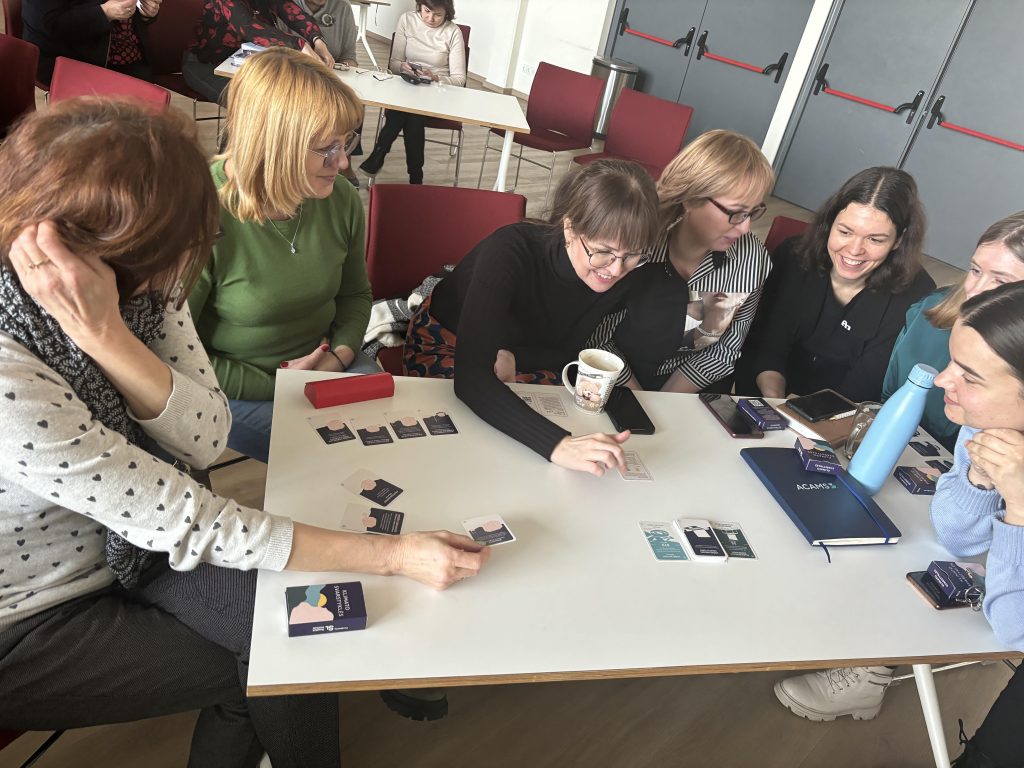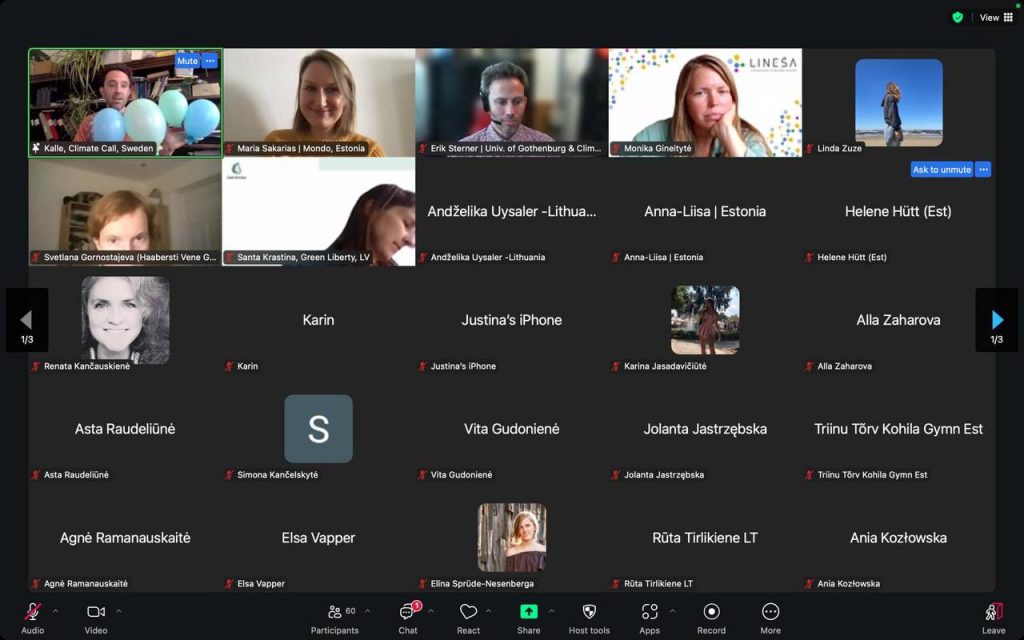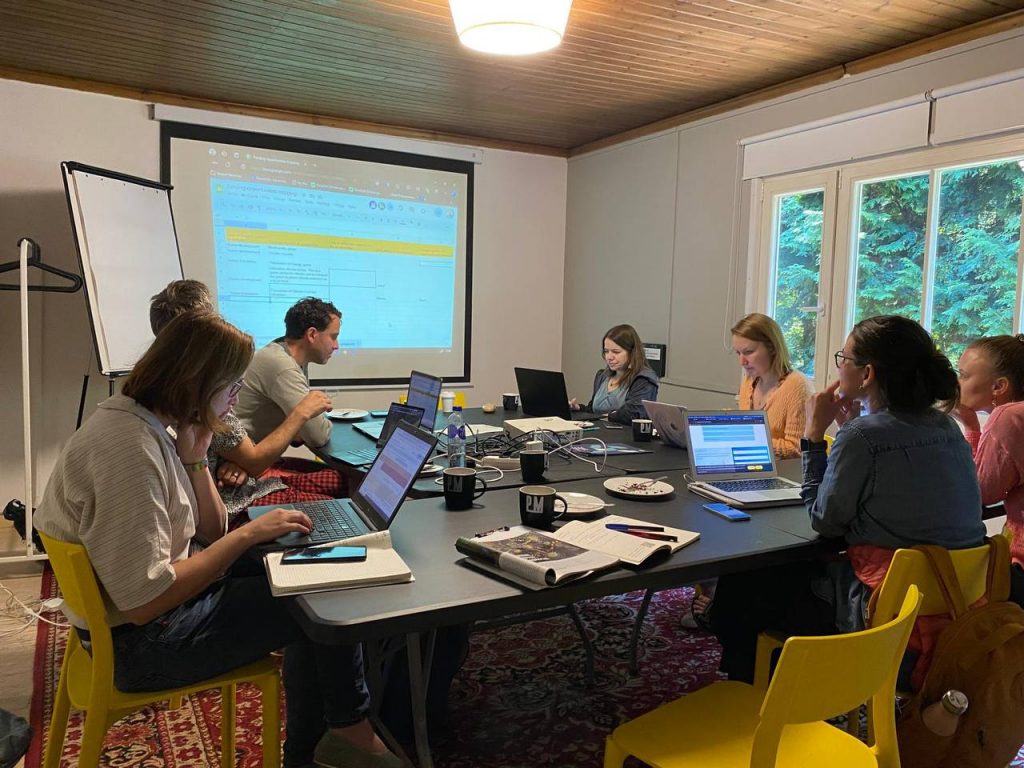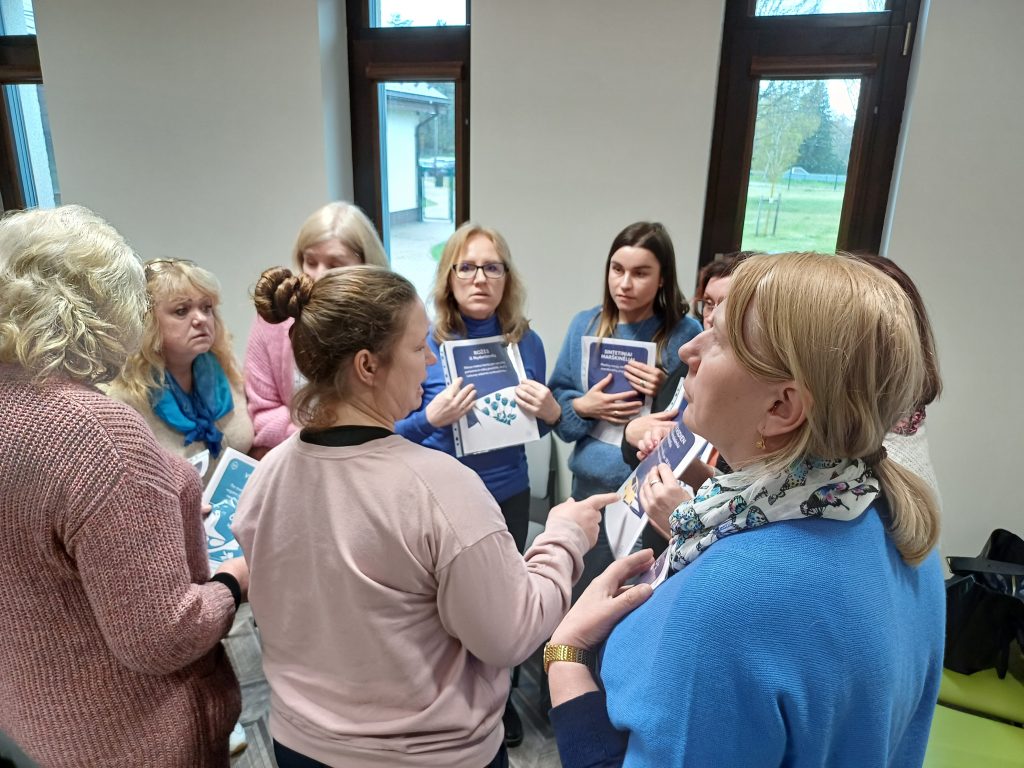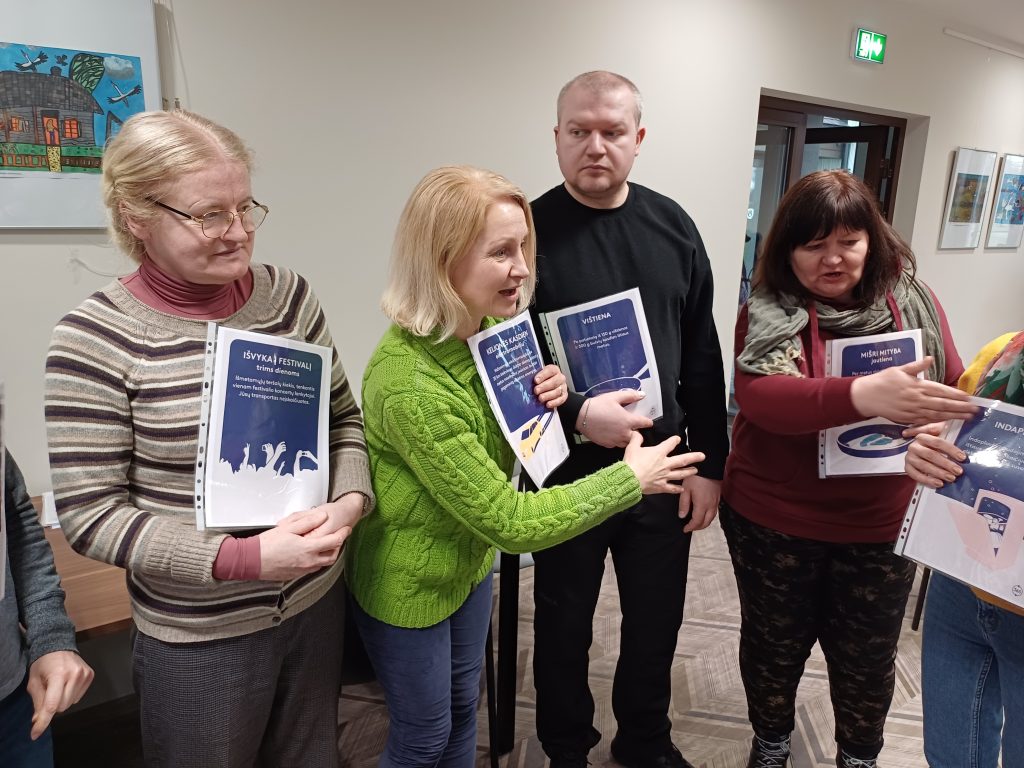We have now been running the ETIP project for about a year. ETIP is an international climate education initiative aimed at enhancing climate teaching across multiple countries. ETIP, which stands for “Empowering Teachers, Inspiring Pupils: A Transnational Approach to Fun and Engaging Climate Education”, focuses on sharing our game-based learning model, creating new language versions of the Climate Call card game, and training teachers in climate education in collaboration with local partner organizations.
With support from the Nordic Council of Ministers and the Swedish Institute, we have so far reached over 1,000 teachers and adapted the materials for each country – a crucial foundation for building lasting impact and engagement. The project participants include partner organizations in Estonia (MTÜ Mondo), Latvia (Green Liberty – known as Zaļā brīvība in Latvian), Lithuania (LINEŠA), and Poland (Center for Citizenship Education, CCE).
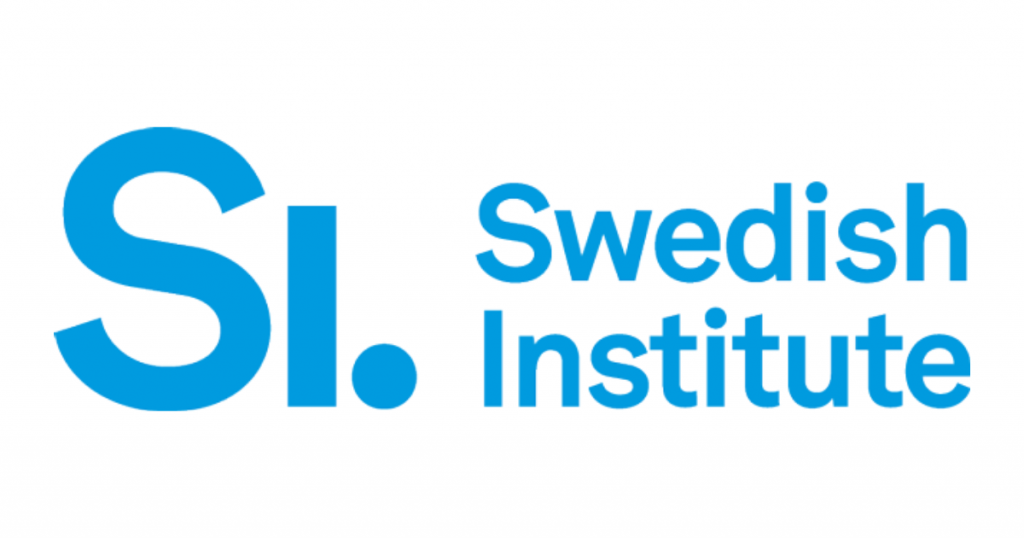
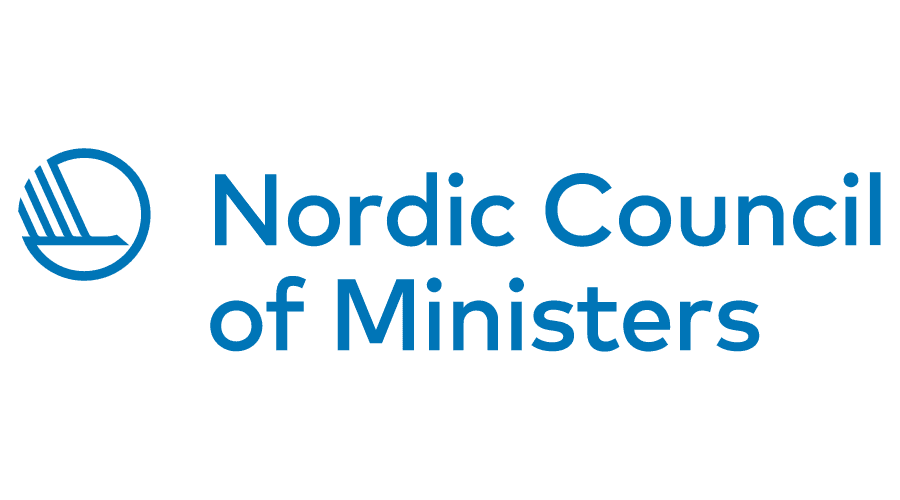
Students at a thousand schools across five countries engaged: here’s the ETIP progress past the halfway mark
The ETIP project is showing strong results in its mission to promote climate education through the card game Climate Call. Today, the project reaches Sweden, Latvia, Lithuania, Poland, and Estonia, already exceeding many of its ambitious goals. The segment funded by the Nordic Council of Ministers concluded at the end of October 2024, while the part funded by the Swedish Institute continues until the end of May 2025. We are now entering a final phase focused on planning for the future and expanding our network. It’s already clear that we want to continue the project in more countries and in partnership with new collaborators.
Here’s what we’ve achieved so far:
– New versions of the card game Climate Call have been created in Polish, Estonian, Russian-Estonian, Lithuanian, and Latvian. A total of 10,000 games have been printed, distributed (mainly to teachers), and put to use in the different countries. Each participating country has received a customized version of the game, carefully tailored to reflect unique aspects of their environment – including housing types, heating methods, and transportation systems. These adjustments allow students to relate to the game on a deeper level, as it mirrors their everyday reality in areas such as energy use, public transportation, and living conditions.
– All supplementary teacher materials (including cross-disciplinary and subject-specific classroom exercises, as well as calculation explanations for selected cards) have been translated into the respective languages.
– Specific websites for each country have been created, where all teacher materials supporting the game are freely accessible. Check out the different websites through the links in the footer!
– Over 1,000 teachers have been trained in climate education using the card game. ETIP’s goal has been to provide climate education to at least 150 teachers in each country. So far, over 1,000 teachers have been trained, significantly surpassing project expectations. Trained teachers have been given free access to the game for classroom use. In Sweden, we at Climate Call have provided training to 200 teachers. Partner organizations in each country have played a crucial role in reaching and engaging teachers.
– We estimate that teachers and students at 1,000 schools across five countries have been engaged in the project, with 400 of those schools in Lithuania alone.
– Approximately 100,000 students have had the chance to play Climate Call through the project, and with many teachers likely to continue using the game, this number will only grow. Thanks to the dedication of teachers and the interactive climate games, a vast number of students have been able to approach climate issues in a fun and educational way.
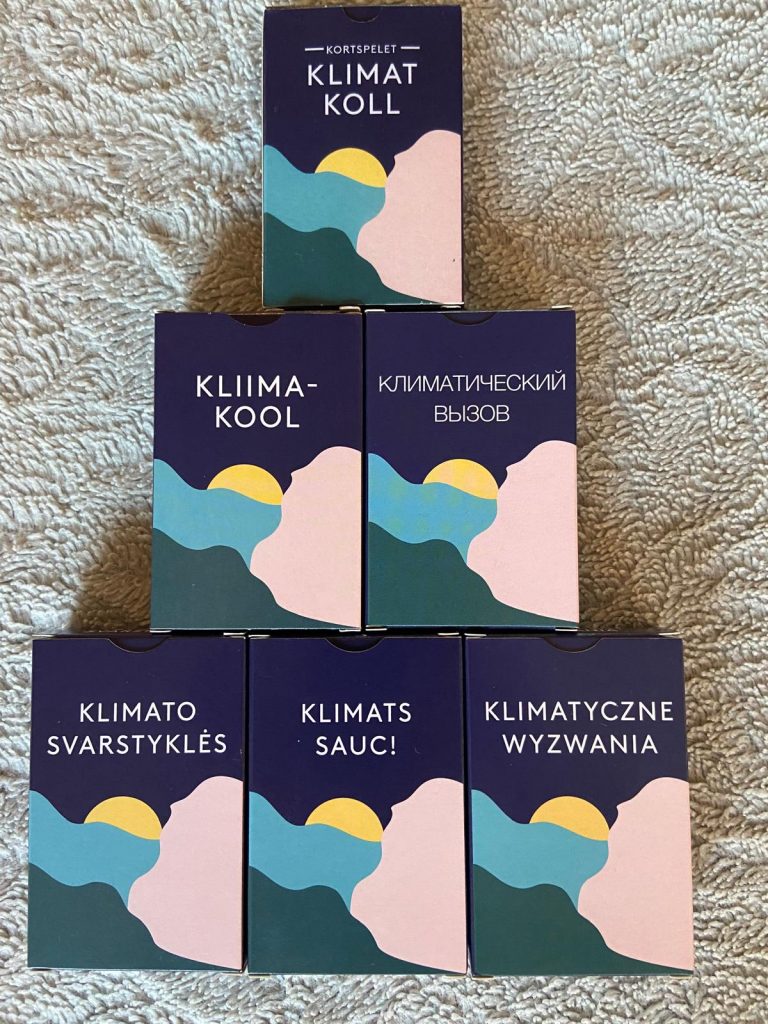
Online climate education: interactive events inspired teachers and students on climate issues
In the autumn of 2024, in collaboration with our partners, we organized two international online events—one aimed at teachers and the other at students. The student event brought together a few hundred students from the five participating countries: Sweden, Latvia, Lithuania, Estonia, and Poland. Through a mix of climate quizzes, discussions, and interactive activities, participants were inspired to explore climate issues in a playful way. The interactive format created a dynamic and creative atmosphere, allowing both students and teachers to enjoy unique opportunities for cross-border collaboration.
Check out the teacher event here!
The teacher event attracted 61 educators eager to learn how the card game Climate Call and its supplementary teaching materials could be used in classrooms to engage students on climate and sustainability topics. The event featured a lecture, a climate quiz, and a practical walkthrough of the online materials. By showcasing the game’s effectiveness as an educational tool, teachers gained a clear understanding of how easy and impactful it is to use Climate Call in their lessons. After the event, free copies of the game were sent to participants, enabling quick implementation in classrooms.
Check out the supplementary teaching materials here!
Both events demonstrated a strong interest in climate education, especially in Lithuania, where outreach efforts were most successful. With the positive feedback from teachers and the enthusiastic response from students, we are encouraged to further expand our network and offer additional online events in the future, aiming to deepen climate awareness and inspire more young people to take action.
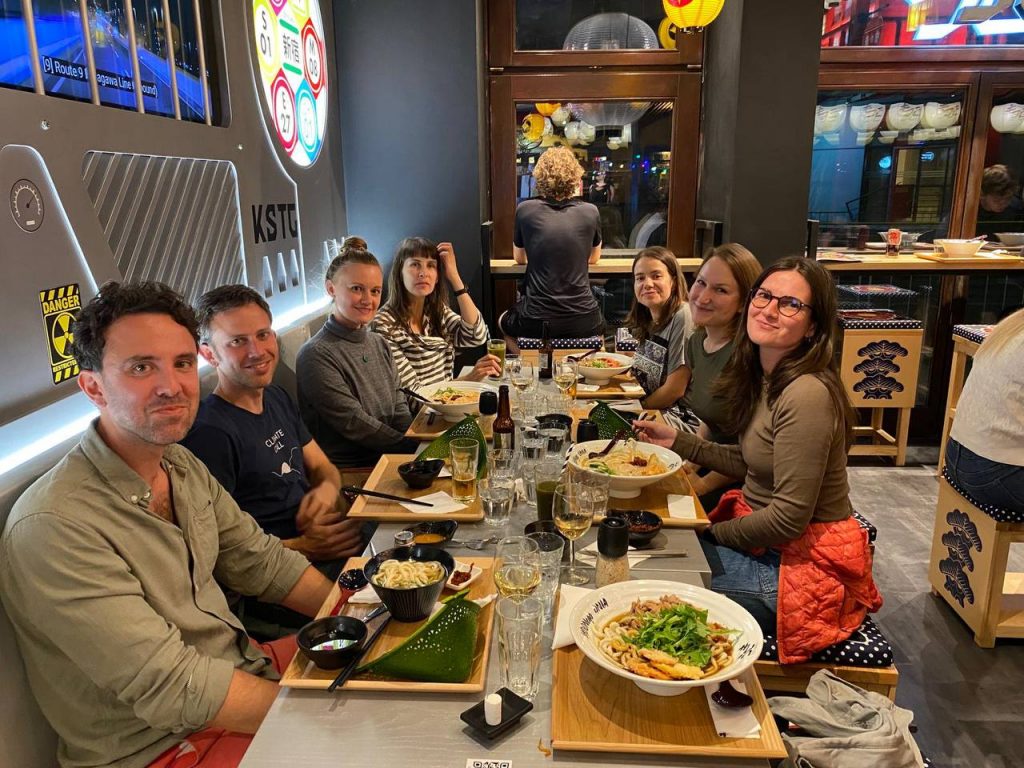
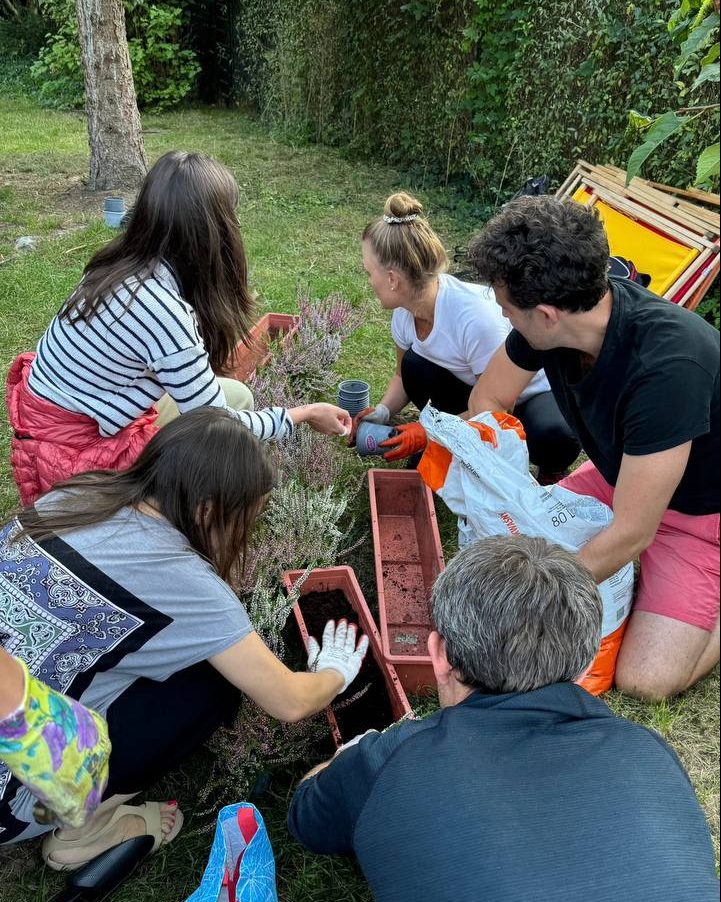
The importance of in-person meetings for building strong partnerships
A key component of the ETIP project is the in-person partnership meetings, aimed at fostering real-life connections. These gatherings have been vital to the project’s success, helping to forge strong bonds between the participating organizations. The project launched with a meeting in Tallinn in September 2023, organized by MTÜ Mondo. This initial meeting served as an essential platform for establishing solid relationships and a shared foundation for the project. Participants exchanged experiences and methods, with many leaving the Tallinn meeting inspired and prepared for the project tasks ahead.
In September 2024, the second partnership meeting took place in Warsaw, Poland, with representatives from all five organizations. The focus was on sharing insights from climate education, discussing how the project went, sharing success stories, and planning future activities. Team building was also an important part of the agenda. Between work sessions, we took time for gardening, canoeing, and a guided tour of the culturally and historically significant Jazdów village.
The final partnership meeting is scheduled for early 2025 in Sweden. We hope to bring together LINEŠA and Green Liberty, along with a representative from both Mondo and CCE, to celebrate the project’s conclusion. We are also considering inviting potential future partners from Finland, Denmark, or other parts of Europe, to strengthen our network and explore new opportunities moving forward.
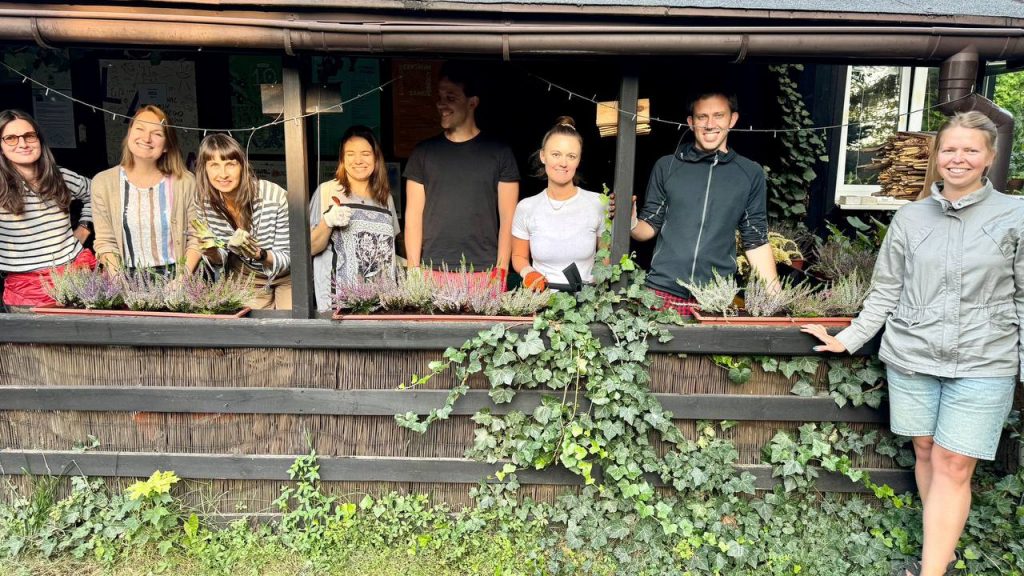
Lessons and new ideas for climate education: report from the Warsaw meeting
At the partnership meeting in Warsaw in September 2024, representatives from all five countries gathered to exchange experiences, discuss challenges, and outline the future path for the ETIP project. The meeting began with each partner organization sharing their insights from teacher training sessions and the game’s implementation in schools. A consistently positive response was noted across all participating countries – the game has been warmly received and is even spreading organically to other projects and contexts! However, certain country-specific challenges emerged, such as the fact that “experience-based learning” is still a relatively new concept in Poland, requiring trainers to be thoroughly familiar with the material.
Check out this instructional video that shows how the game works
The meeting also addressed ways to best integrate the game’s teaching materials into different national curricula. Participants collaborated to find ways to link the game’s activities and themes to specific curriculum objectives in subjects taught by teachers. There was also interest in holding a workshop on AI and climate education, with Erik Sterner from Climate Call offering to lead a session on this for project members. Another idea raised was to develop new games, including one entitled “Climate Collective,” aiming to shift the focus from individual responsibility to collective action.
The meeting concluded with a discussion on the project’s future and potential funding options for continued initiatives. Several improvement suggestions were made for the game and the supplementary materials, such as simplifying instructions, particularly for younger students and teachers less familiar with climate education. A new training module was also proposed to help teachers address students’ questions even when they don’t have all the answers, which would enhance teachers’ confidence and foster a more supportive learning environment. With reflections and a unifying close, participants left the Warsaw meeting inspired and ready for the next phase of the ETIP project.
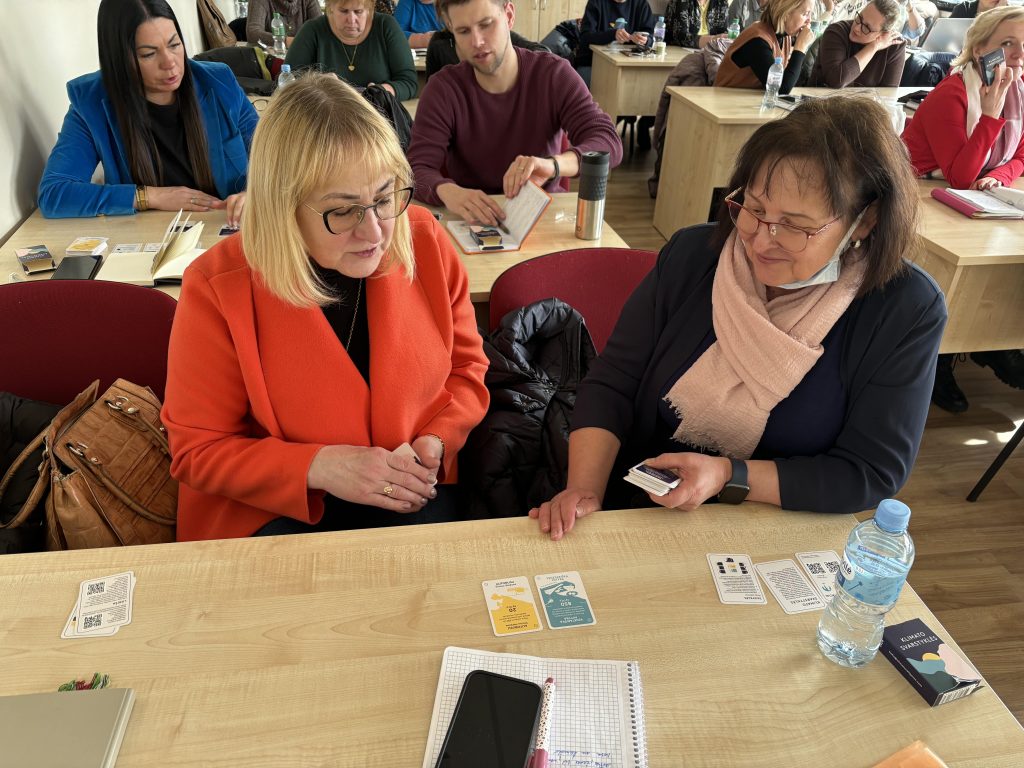
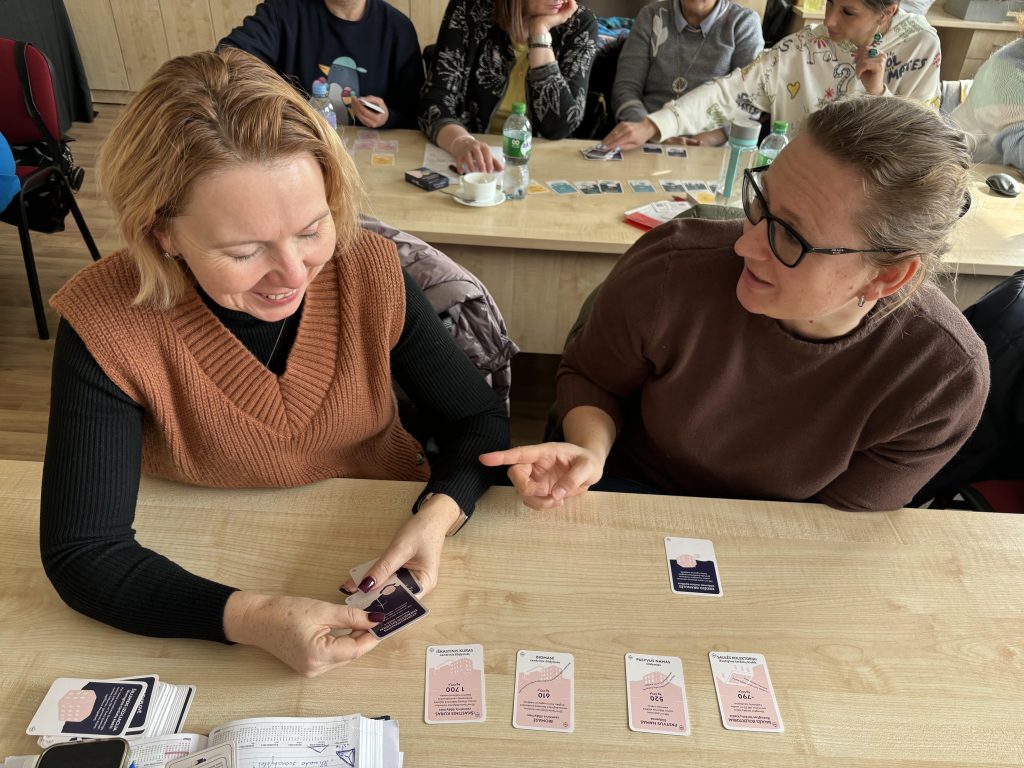
"A truly unique approach to teaching climate issues"
Here’s what one of our partners from the educational organization MTÜ Mondo in Estonia had to say:
“At the latest Climate Call workshop given by one of our trainers, which took place at the Tallinn University of Applied Sciences, 100% of the surveyed students said they gained valuable new knowledge and would recommend the activity to others. We consistently receive such positive feedback whenever we introduce this method. Climate Call is both fun and impactful – it’s a totally unique approach to climate education.” – Maria (Mondo)
What long-term impact can the project be expected to have?
The ETIP project has the potential to create long-term positive effects on both climate education and students’ climate awareness in participating countries. By integrating the card game Climate Call and its supplementary teaching materials into schools, teachers are provided with practical tools to teach climate issues in an engaging and accessible way for students. Over time, this can make climate education a more natural and integrated part of the school curriculum, allowing students from a young age to gain a deeper understanding of sustainability issues and how their daily choices impact the climate.
In the long run, the project may also help cultivate a new generation of young people who are better equipped to address climate issues and more inclined to take responsibility for the environment. By building a network of trained teachers and collaborating schools across multiple countries, knowledge is continuously spread, enabling more students to be reached each year. This network could expand in the future to additional regions and countries, with new versions of the game and teaching materials being adapted and implemented.
Furthermore, the project strengthens partnerships between educational organizations across Europe, contributing to the development and dissemination of best practices in climate education. These international collaborations can, over time, create a solid foundation for ongoing innovation in climate pedagogy. In summary, the ETIP project has the potential not only to educate and inspire students and teachers today but also to shape future climate-conscious citizens.
This is how we plan to continue investing in climate education for the future
Climate Call looks forward to a future where the project’s reach and impact can expand even further. To make this possible, we are actively exploring new funding sources to build on our growing ETIP network. So far, we have secured some foundational funding, allowing more organizations to participate and enabling the development of new country-specific versions of the game. However, this is just initial funding, and our strategy moving forward is to focus on larger grants for long-term projects and expansion.
In its first year, the ETIP network has grown rapidly, both in terms of new partners and funded projects. One example is a mini-project funded by Sivil Düşün earlier this year, which enabled the creation of a Turkish version of the card game Climate Call. In this project, we are collaborating with two Turkish researchers to distribute the game in Turkey, where it is being introduced in a similar way to other countries in the network. Through these efforts, we aim to spread the commitment to climate education beyond Europe.
Another example of the project’s growth is the partnership with the Natural History Museum in Denmark, Økolariet Science Centre, and ENO Schoolnet Association in Joensuu, Finland. Through a Nordplus Horizontal grant, we have secured foundational funding to create Danish and Finnish versions of the game and the opportunity to distribute materials to teachers in these countries. In line with our vision, we ensure that the materials are locally adapted and aligned with each country’s curriculum, which is essential to successfully spread climate education and engage students in sustainability and climate issues in a meaningful way.
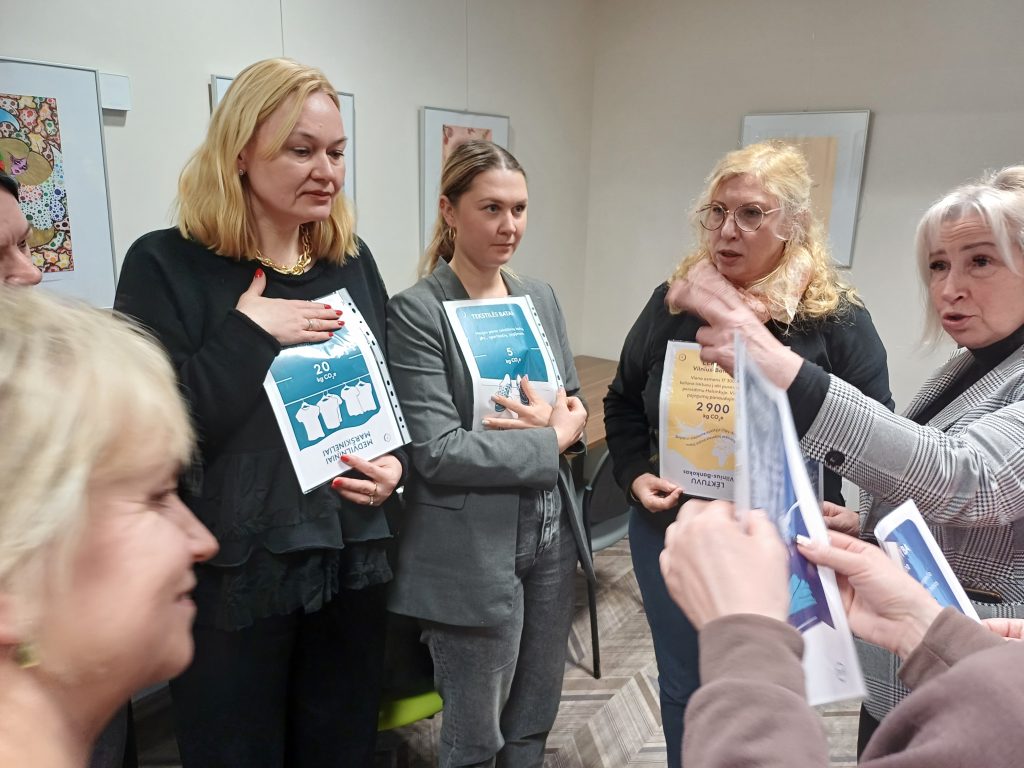
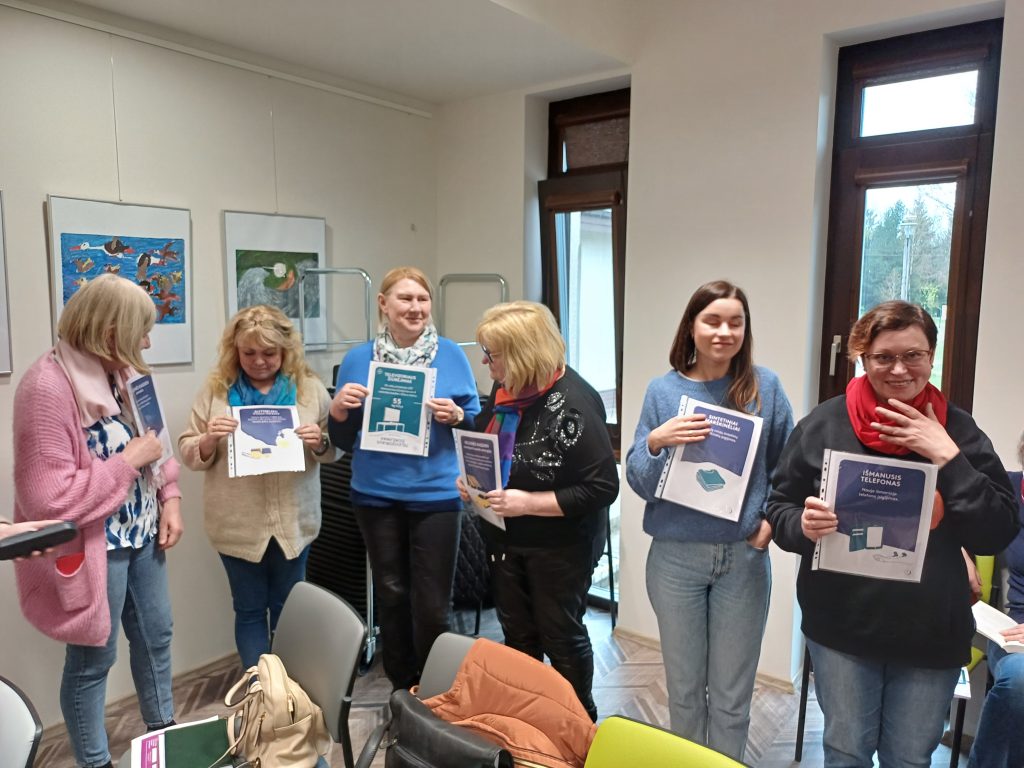
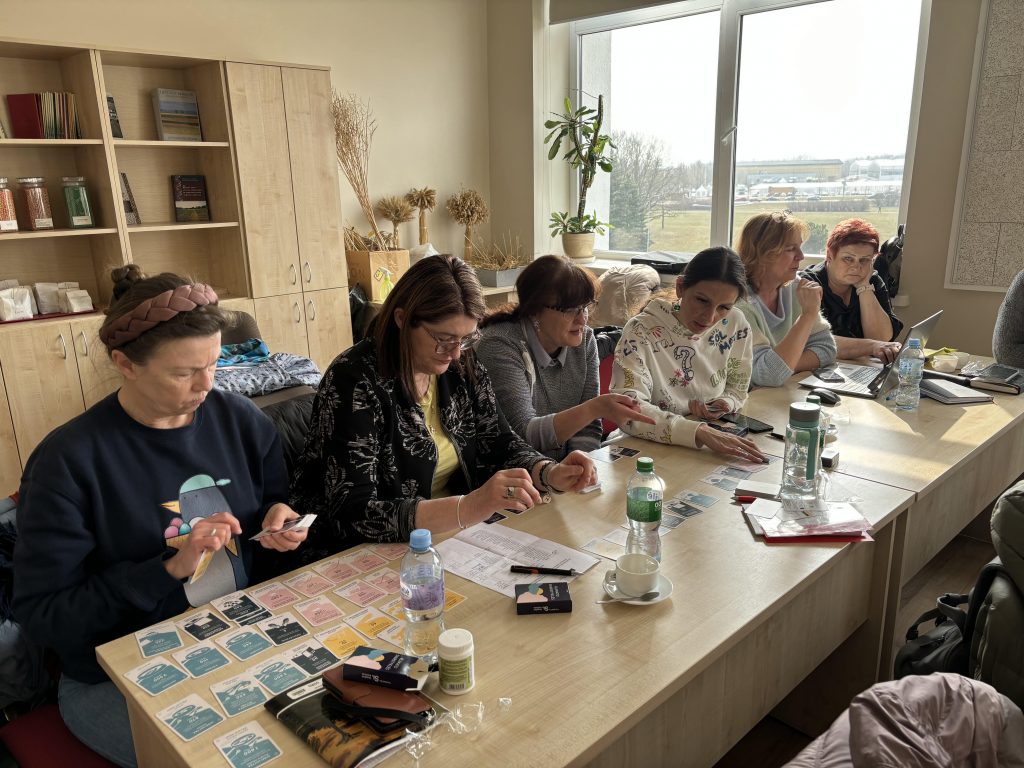
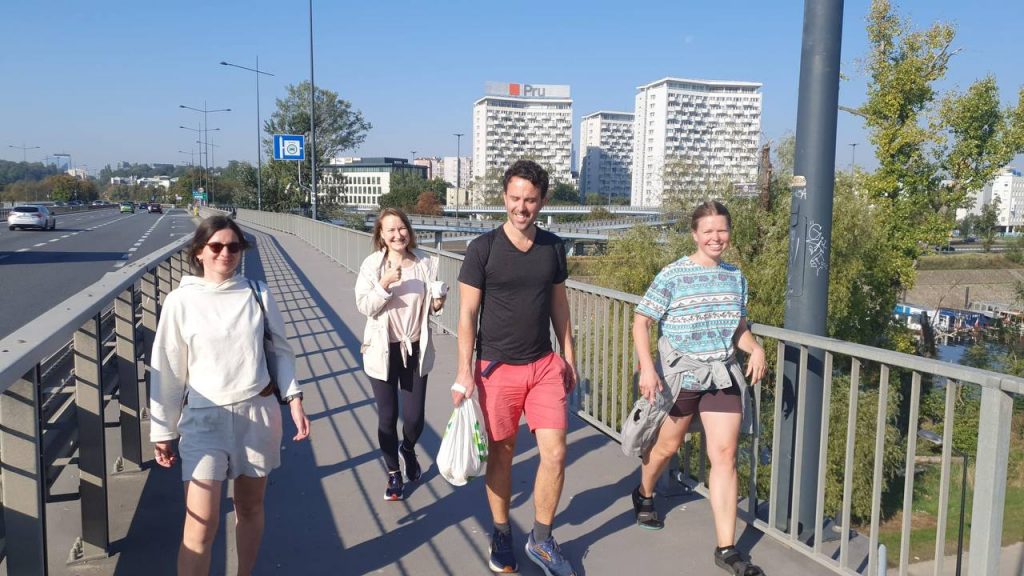
Lessons about climate education from the project
Through the ETIP project, we have gathered valuable insights on the best ways to teach climate issues and foster engagement among both teachers and students. One of the key lessons is that game-based learning is particularly effective for complex and sensitive topics like climate change and the climate crisis. The card game Climate Call has become a popular tool for making climate issues accessible and relevant, regardless of country or student group. Even teachers who previously lacked extensive knowledge or experience in climate education find the game a supportive resource in the classroom.
Another essential element of the project has been learning through networking and knowledge exchange across countries. By bringing together neighboring countries and partner organizations, we have been able to leverage each other’s experiences and adapt the best methods for climate education. Partnerships and close contact from the start of the project have proven crucial for building trust and enabling smoother communication between organizations, which facilitates collaboration and simplifies activity coordination.
For teachers, the flexibility of the game format has been advantageous—it works well with both younger and older students, making it easy to incorporate into various subjects and classroom settings. A key takeaway has been the importance of providing supporting materials and a summary of key concepts so that teachers feel confident, even if they do not have deep expertise in climate issues themselves. By offering this support, more teachers are encouraged to use the game, thereby increasing the number of students exposed to climate education.
Finally, we have seen the importance of adapting the game to each country’s unique context, such as housing types, transportation patterns, and energy use. This customization allows students to connect with the game’s content on a deeper level, enhancing their trust in the game and strengthening their understanding and engagement. The experiences from ETIP demonstrate that, through local adaptation and a robust network of partners, climate education can create lasting impact and be meaningfully embedded in schools.
Partner with us and join our network of climate educators!
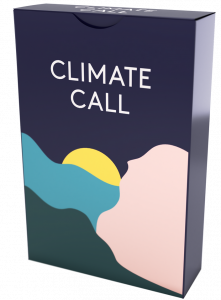
Are you interested in partnering with us on climate education? We’re always looking for new partnerships to develop and adapt the card game Climate Call for more countries and regions. If you’re passionate about spreading knowledge on climate change and sustainability in a fun, engaging way, this is a unique opportunity! Connections to new countries are a big plus!
By partnering with us, we can work together to create a version of the card game Climate Call tailored to your country and its specific challenges. We believe in the power of collaboration and raising awareness through game-based learning. If you share our vision and want to be part of this exciting project, contact us today at hello@climatecallgame.com!
